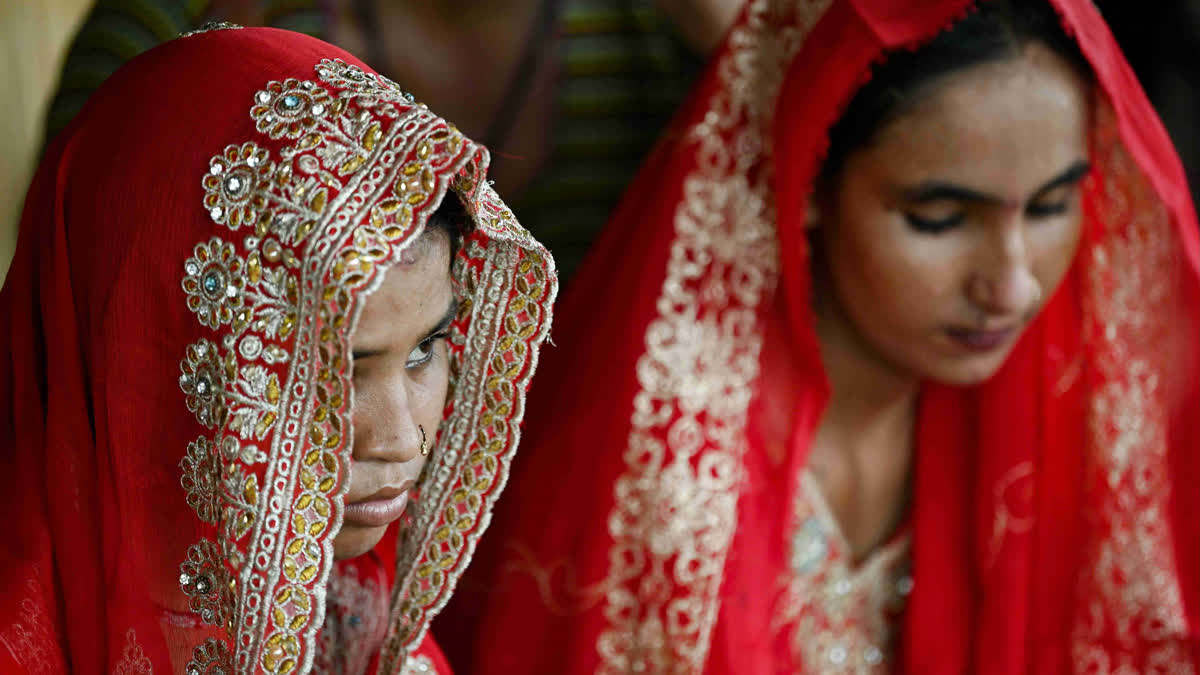Dadu, Pakistan:As monsoon rains were about to break over Pakistan, 14-year-old Shamila and her 13-year-old sister Amina were married off in exchange for money, a decision their parents made to help the family survive the threat of floods.
"I was happy to hear I was getting married... I thought my life would become easier," Shamila told AFP after her wedding to a man twice her age in hope of a more prosperous life.
"But I have nothing more. And with the rain, I fear I will have even less, if that is possible."
Pakistan's high rate of marriages for underage girls had been inching lower in recent years, but after unprecedented floods in 2022, rights workers warn such weddings are now on the rise due to climate-driven economic insecurity.
The summer monsoon between July and September is vital for the livelihoods of millions of farmers and food security, but scientists say climate change is making them heavier and longer, raising the risk of landslides, floods and long-term crop damage.
Many villages in the agricultural belt of Sindh have not recovered from the 2022 floods, which plunged a third of the country underwater, displaced millions and ruined harvests.
"This has led to a new trend of 'monsoon brides'," said Mashooque Birhmani, the founder of the NGO Sujag Sansar, which works with religious scholars to combat child marriage.
"Families will find any means of survival. The first and most obvious way is to give their daughters away in marriage in exchange for money."
Birhmani said since the 2022 floods, child marriage has spiked in villages in Dadu district, one of the worst-hit areas that for months resembled a lake.
In Khan Mohammad Mallah village, where Shamila and Amina were married in a joint ceremony in June, 45 underage girls have become wives since the last monsoon -- 15 of them in May and June this year.
"Before the 2022 rains, there was no such need to get girls married so young in our area," said village elder Mai Hajani, 65.
"They would work on the land, make rope for wooden beds, the men would be busy with fishing and agriculture. There was always work to be done".
Parents told AFP that they hurried the marriage of their daughters to save them from poverty, usually in exchange for money.
Shamila's mother-in-law, Bibi Sachal, said they gave 200,000 Pakistan Rupees ($720) to the young bride's parents –- a major sum in a region where most families survive on around one dollar a day.
'I thought I would get lipstick' -
Najma Ali was initially swept up in the excitement of becoming a wife when she married at 14 in 2022 and began living with her in-laws, as is tradition in Pakistan.
"My husband gave my parents 250,000 rupees for our wedding. But it was on loan (from a third party) that he has no way of paying back now," she said.
